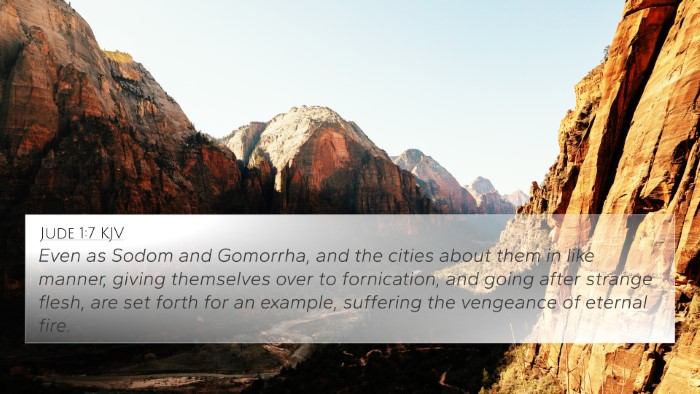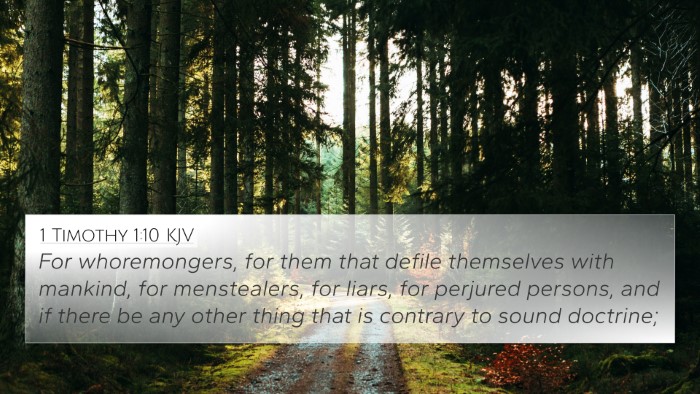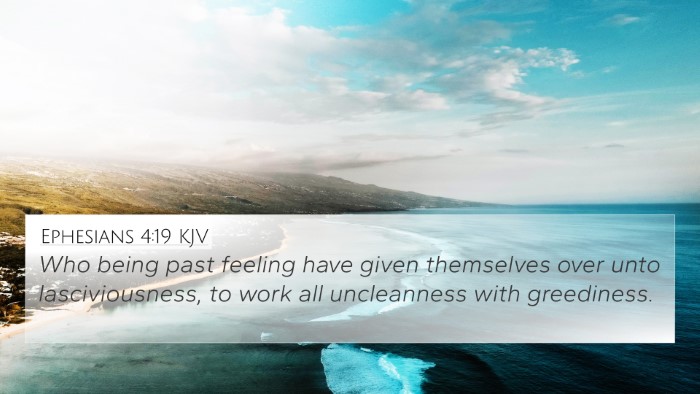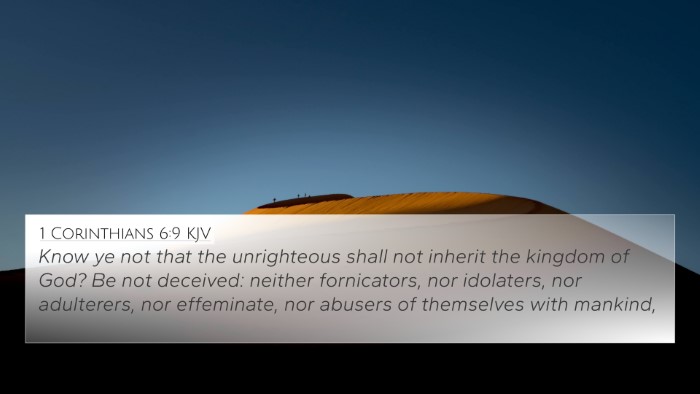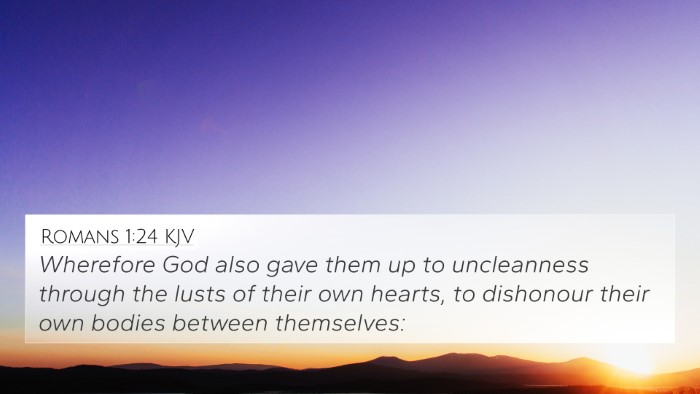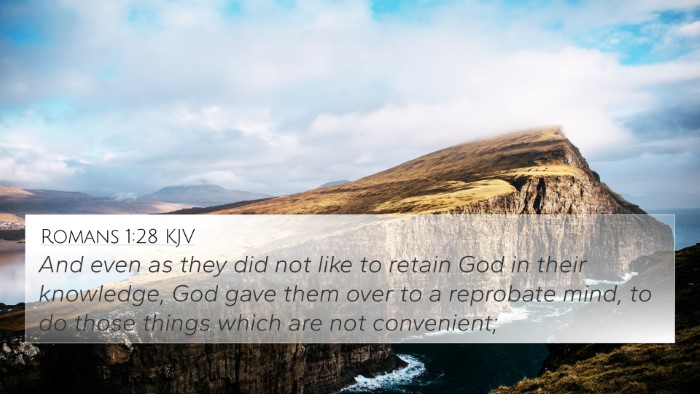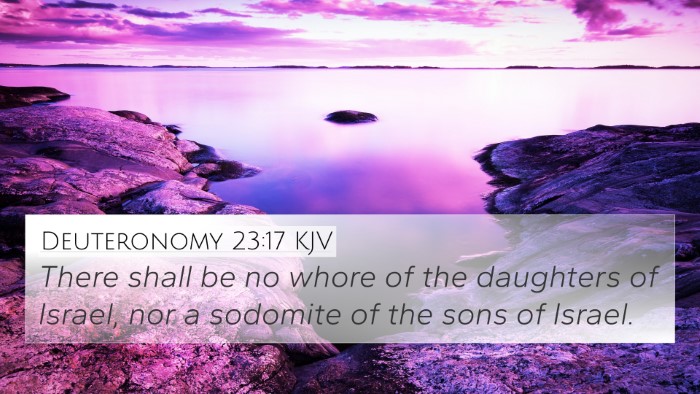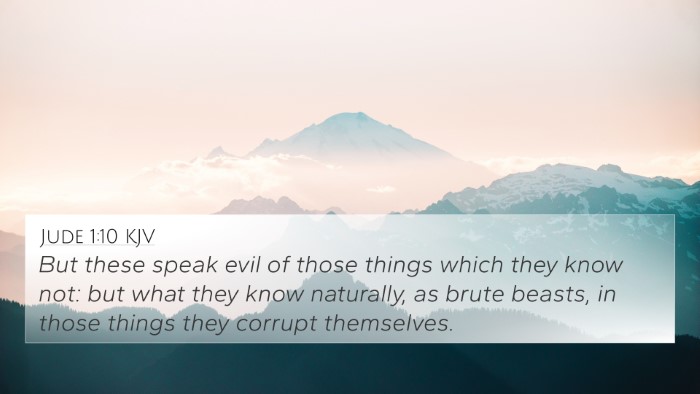Understanding Romans 1:26
Romans 1:26 states: "For this reason God gave them up to vile passions. For even their women exchanged the natural use for what is against nature." This verse is a part of a broader discourse by the Apostle Paul on the topic of sin, idolatry, and human depravity. The verse specifically addresses the consequences of turning away from God and indulging in sinful desires.
Commentary Insights
This verse is rich in meaning, drawing insights from various public domain commentaries. Here, we combine thoughts from Matthew Henry, Albert Barnes, and Adam Clarke to deepen our understanding:
-
Matthew Henry Insights:
Henry emphasizes the notion of God's judgment. The phrase "God gave them up" indicates a divine abandonment, depicting a serious consequence of persistent sinfulness. This abandonment leads to further moral decay, where "vile passions" take precedence over natural affections.
-
Albert Barnes' Perspective:
Barnes elaborates on the unnatural behaviors referred to in this verse. He points out that the exchange of natural use signifies a profound departure from God's intended order for relationships. The description of "vile passions" reinforces the idea of corruption that comes when humanity chooses sin over divine guidance.
-
Adam Clarke’s Interpretation:
Clarke provides context by reminding readers of the cultural backdrop of Paul's writings. He explains that deviations from God's design signified not only a spiritual failure but also a societal one, where the moral fabric of civilization begins to unravel. Clarke insists that understanding these aberrations requires recognizing the divine intention behind gender roles and relationships.
Bible Cross-References
To enhance the study of Romans 1:26, we can consider cross-referencing other scripture passages that echo similar themes:
- 1 Corinthians 6:9-10: Lists behaviors that disqualify individuals from the Kingdom of God.
- Galatians 5:19-21: Discusses the works of the flesh, highlighting moral failures akin to those in Romans.
- 2 Peter 2:10-19: Warns against those who indulge in fleshly desires, exemplifying divine judgment.
- 1 Timothy 1:9-10: Identifies various sinful behaviors contrary to sound doctrine.
- Genesis 19:5-7: The account of Sodom and Gomorrah, which reflects societal decay prevalent during Paul's time.
- Jude 1:7: Mentions the destruction of Sodom and Gomorrah as a warning against immorality.
- Ephesians 4:19: Describes those who, having lost sensitivity, indulge in impurity and excessive greed.
- Colossians 3:5: Paul urges believers to put to death what is earthly in them, paralleling the exhortation in Romans.
- Revelation 21:8: Lists those who will face the second death, underscoring the serious nature of sin.
- Matthew 15:19-20: Where Jesus identifies that evil thoughts lead to immoral actions, consistent with Paul’s message.
Thematic Bible Verse Connections
The themes of sin, judgment, and restoration are central to the Scriptures. Romans 1:26 connects to broader Biblical narratives about:
- Human Depravity: As seen in Genesis 6:5 where the thoughts of humanity were only evil continually.
- God's Wrath: Romans 1:18 discusses God's wrath being revealed against all ungodliness.
- Hope for Redemption: Despite the bleakness of sin, Romans 5:8 shows God's love in Christ while we were still sinners.
Tools for Bible Cross-Referencing
Understanding how to cross-reference Bible verses enhances theological study. Consider these tools:
- Bible Concordance: Useful for finding specific words and their occurrences.
- Bible Cross-Reference Guide: Offers quick reference tools to understand verse connections.
- Bible Chain References: Follow thematic links through various passages.
- Cross-Referencing Bible Study Methods: Methodologies for comparing different scriptures for thematic development.
- Comprehensive Bible Cross-Reference Materials: In-depth resources that explore extensive cross-referencing among biblical texts.
Conclusion
Romans 1:26 serves as a grave reminder of the consequences of rejecting God's design. Understanding the depth of this verse through public domain commentaries and cross-referencing related scriptures provides a comprehensive view of its implications. As believers, engaging with these texts can foster greater insights into our faith, morality, and the nature of God’s righteousness.



